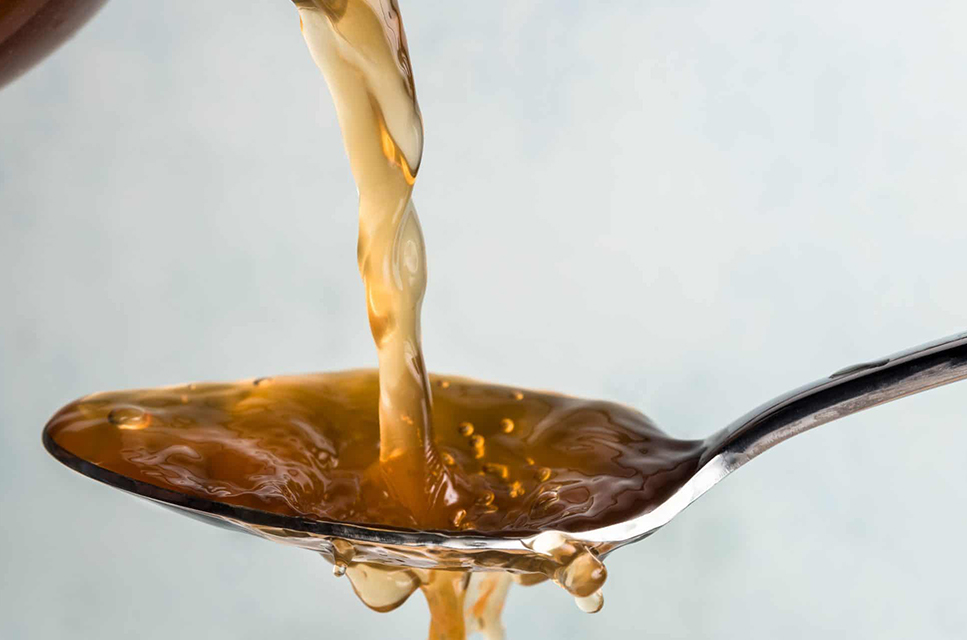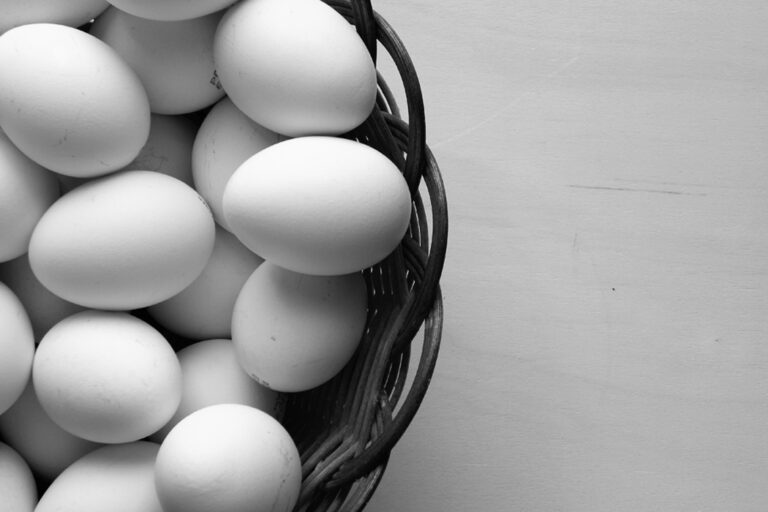Gastronomy; Different Substitutes to Champagne Vinegar: Alternative Acids for Your Recipes. [read the full champagne story]
Estimated reading time: 13 minutes

Champagne vinegar is a mild, floral vinegar typically used in upscale cooking to add light acidity and subtle elegance to dishes. Originating from the Champagne region of France, it is created by fermenting champagne into vinegar. Known for its delicate flavor, champagne vinegar is often used in vinaigrettes, marinades, and as a finishing touch for certain recipes. However, it may not always be readily available in your local grocery store, or you might be seeking a more cost-effective alternative for your culinary endeavors.
There are several suitable substitutes for champagne vinegar that can mimic its flavor profile and maintain the integrity of the dish you are preparing. When you’re in need of a replacement, white wine vinegar stands out as a reliable option. It’s made in a similar way to champagne vinegar but with white wine as the base instead of champagne. It offers comparable acidity with a flavor that won’t overpower your dishes. Another alternative, apple cider vinegar, brings a slightly fruitier taste that can complement salads and sauces while providing a similar acidity to champagne vinegar.
What is Champagne Vinegar
Champagne vinegar originates from champagne or sparkling wine and undergoes a second fermentation process to create a unique condiment.
Champagne Vinegar Characteristics
Champagne vinegar is produced when the alcohol in champagne or sparkling wine undergoes a secondary fermentation, transforming it into acetic acid. This process is enhanced by specific strains of acetobacter, which thrive in this environment. Often matured in oak barrels, this vinegar develops a rich complexity. Its notable characteristics include a tangy flavor and delicate taste, which distinguish it from other types of vinegar. It is made primarily from pinot noir grapes along with other grape varieties used in champagne production.
Champagne Vinegar Uses
In your culinary adventures, you’ll find champagne vinegar particularly useful in creating vinaigrettes, sauces, marinades, and salad dressings. Its milder acidity pairs well with delicate flavors, making it a preferred ingredient for dishes that require a subtle vinegar presence. Here, the champagne vinegar can add a refined touch without overpowering the original flavors of your food.
White Wine Vinegar
White wine vinegar is cherished for its fine balance of acidity and aromatic flavor, making it a versatile ingredient in your culinary toolkit.
White Wine Vinegar as a Substitute
When your recipe calls for champagne vinegar and you find your supply lacking, reach for white wine vinegar. It stands as a close substitute due to its similar flavor profile. Here’s what you need to know:
-
Flavor Profile: White wine vinegar possesses a slightly more robust acidity than champagne vinegar but shares a similar grape-based origin. This common heritage means the flavors are close enough that white wine vinegar won’t disrupt the balance of your dish.
-
Usage: You can substitute white wine vinegar in equal measures for champagne vinegar. This ensures the intended acidity is maintained, keeping your recipe on track.
Remember, the goal is to complement, not overpower, the natural flavors of your ingredients. White wine vinegar carries a gentle yet assertive edge that does just that.
Apple Cider Vinegar
Apple cider vinegar is a versatile and widely accessible substitute for champagne vinegar, known for its strong and slightly fruity flavor profile that can complement many dishes.
Using Apple Cider Vinegar
When you’re looking for a substitute in dressings, marinades, or recipes where champagne vinegar is called for, apple cider vinegar is a suitable option. Be aware that it has a more robust taste, so you may want to start with a smaller quantity and adjust to your preference.
-
Flavor Profile: Apple cider vinegar provides a tart, fruit-forward taste with a slightly sweet note, making it a dynamic addition to vinaigrettes and sauces.
-
Health Benefits: It’s often celebrated for potential health benefits such as supporting digestion and improving skin health due to its acetic acid content and the presence of beneficial bacteria.
-
Substituting Tips:
- In recipes requiring champagne vinegar, you can substitute apple cider vinegar at a 1:1 ratio. Adjust to taste if necessary.
- For a less intense flavor, dilute apple cider vinegar with water.
- If a recipe calls for a sweeter champagne vinegar, consider adding a pinch of sugar to the apple cider vinegar for balance.
Remember, substituting vinegars may slightly alter the original dish’s intended flavor, but apple cider vinegar’s unique taste can introduce a delightful twist to your recipes.
Sherry Vinegar
Sherry Vinegar, originating from Spain, has a unique complexity that can enhance your dishes. It is known for its balanced acidity and distinctive flavor profile.
Versatility of Sherry Vinegar
When you’re looking for a champagne vinegar substitute, Sherry Vinegar stands out with its versatility. Its acidity is comparable to champagne vinegar, making it suitable for a variety of culinary applications. The flavor profile of Sherry Vinegar includes notes of nuts and dried fruit, which can add depth to vinaigrettes, marinades, and sauces.
- Salad Dressings: You’ll find that Sherry Vinegar brings a sharpness that can elevate your greens.
- Marinades: Its acidity helps tenderize proteins and infuses them with flavor.
- Sauces: Adds a rich dimension to reductions and gravies.
Remember, while Sherry Vinegar can serve as a substitute, the flavor nuances will differ. Use it when you desire a more robust character in your dishes.
Rice Vinegar
Rice vinegar, known for its delicate taste and slightly sweet flavor, serves as an excellent substitute for champagne vinegar in a variety of dishes.
Substituting with Rice Vinegar
When substituting rice vinegar for champagne vinegar, you should use a simple 1:1 ratio as the two vinegars are comparable in acidity and sweetness. For instance, if your recipe calls for one tablespoon of champagne vinegar, you would use one tablespoon of rice vinegar as a replacement.
Common Uses:
Rice vinegar is most often utilized in Asian cuisine, particularly in dressings, marinades, and stir-fries.
Main Differences:
- Taste: Rice vinegar is milder and has a less pronounced tartness compared to champagne vinegar.
- Color: Rice vinegar is typically clearer and may slightly alter the color of your dish.
When to Avoid Use:
- If a recipe hinges on the unique flavor of champagne vinegar, consider whether the substitution will suit your taste preferences.
Keep in mind that rice vinegar, also labeled as rice wine vinegar, integrates seamlessly into most recipes that originally require champagne vinegar, making it a versatile and readily available alternative.
Balsamic Vinegar
When searching for a Champagne vinegar substitute, your choice of Balsamic vinegar can offer a rich and complex flavor profile to your dishes.
Balsamic Vinegar for a Rich Taste
Balsamic vinegar originates from Italy and is known for its bold, nuanced flavors. It’s typically made from grape must that is aged in wooden barrels, often oak, which contributes to its distinct taste and aroma. The aging process can vary, ranging from several months to many years. The longer the aging, the more intense and concentrated the flavor.
Acidity: Balsamic vinegar’s acidity is lower than that of Champagne vinegar, which tends to be mellower and sweeter. This makes it a suitable complement to recipes where a less sharp acidic note is preferred. When using Balsamic vinegar in salad dressings, you may want to adjust the quantity due to its more pronounced flavor.
- Substituting in Recipes: You can replace Champagne vinegar with Balsamic vinegar in a one-to-one ratio, but considering Balsamic’s robust taste, starting with a smaller amount and adjusting to taste is advisable.
- Culinary Uses: It’s versatile in the kitchen, enhancing salad dressings, marinades, and glazes. Balsamic vinegar can also add depth to sauces and is excellent when drizzled over roasted vegetables or fresh fruits.
The rich, complex notes of Balsamic vinegar can transform your dishes, offering a sumptuous alternative to the lighter Champagne vinegar. Remember to consider the balance of flavors in your recipe, as the intensity of Balsamic can easily become the centerpiece of your dish.
Red Wine Vinegar
Red wine vinegar is a versatile and robust substitute for champagne vinegar that can lend a similar acidity to dishes.
Red Wine Vinegar and its Distinct Flavors
Red wine vinegar carries a bold flavor profile; it’s more assertive than champagne vinegar, infusing dishes with a sharpness and a slight fruitiness derived from red wine. It works exceptionally well in vinaigrettes, enhancing salads with its complex taste. When substituting red wine vinegar for champagne vinegar, consider the following:
- Acidity: Red wine vinegar typically has a higher acidity level, meaning you may need to use it sparingly to achieve the intended taste balance in your recipe.
- Flavor Profile: Expect a tangier and potentially more pronounced flavor, especially in delicate dishes where the substitute may slightly alter the expected outcome.
- Color: The deep red hue can affect the appearance of your vinaigrette or marinade, so keep this in mind for presentation purposes.
For adjustments in your vinaigrettes:
- Start with less red wine vinegar than the amount of champagne vinegar called for.
- Add incrementally, tasting as you go to reach the desired acidity and flavor.
- Consider pairing with milder oils to balance out the intensity of the vinegar.
Remember, your personal taste preference is paramount, and experimenting with red wine vinegar can expand your culinary repertoire.
White Vinegar and Lemon Juice
White vinegar and lemon juice can serve as effective substitutes for champagne vinegar, balancing both tanginess and acidity in your dishes.
Acidity and Flavor Adjustments
When substituting champagne vinegar with white vinegar and lemon juice, consider the acidity levels. White vinegar generally has a higher acidity (around 5-7% acetic acid) compared to the 5-6% acetic acid in champagne vinegar. To match the milder taste, you can dilute white vinegar with water. A good starting ratio is 1 tablespoon of white vinegar to 1 tablespoon of water, adjusting according to your taste preference.
For the flavor profile, lemon juice can add a fresh, citrusy note. Mix the diluted white vinegar with lemon juice, starting with a quarter teaspoon of lemon juice per tablespoon of the vinegar-water mixture. This mixture won’t perfectly mimic the light, slightly fruity flavor of champagne vinegar, but it provides a suitable alternative that complements most dishes, including those that involve pickling.
Remember to taste and adjust as you go—the goal is to reach a balance that suits your specific recipe without overpowering it. Use this substitute in salad dressings, marinades, or any dish that calls for a splash of bright acidity.
Other Fruit Vinegars
When searching for a champagne vinegar substitute, exploring other fruit vinegars can be an enlightening way to expand your culinary palette while achieving similar acidity and sweetness in your dishes.
Utilizing Raspberry and Persimmon Vinegars
Raspberry vinegar holds a robust flavor profile with a notable tartness and a fruit-forward zing. It’s a versatile vinegar that can enliven salad dressings, marinades, or sauces. To substitute for champagne vinegar, consider the intensity of the raspberry vinegar as it can be more potent. Here’s a simple comparison to guide you:
| Vinegar Type | Flavor Profile | Best Used In |
|---|---|---|
| Champagne Vinegar | Mildly tart and slightly sweet | Delicate sauces, seafood dishes |
| Raspberry Vinegar | Bolder, fruitier, and sharper | Dressings, reduction glazes |
For persimmon vinegar, its unique taste can offer a subtle sweetness and a milder tartness compared to raspberry vinegar. It’s less common, but an intriguing substitute that can accentuate the flavors in your recipe without overwhelming them.
- To substitute for champagne vinegar, start with a small amount and adjust to your taste preferences.
- Note the tannic undertones that persimmon vinegar might contribute to your dish, especially if it’s made from astringent varieties of the fruit.
While both raspberry and persimmon vinegars offer distinct taste experiences, they serve as excellent substitutes that can uphold the integrity of your dish with their conducive flavor affinities.
Exotic Vinegar Substitutes
In search of alternative vinegars to Champagne vinegar, you might be intrigued by the unique characteristics of coconut and herb vinegars. These substitutes not only maintain the acidity needed for your recipes but also introduce a distinctive flavor profile.
Coconut Vinegar
When you require a vinegar that offers a milder taste with a slightly sweet note, coconut vinegar is an appropriate substitute. This vinegar is derived from the sap of coconut flowers, which is then fermented. Its acidity is less pronounced than that of Champagne vinegar, which allows it to blend well in dressings or marinades without overpowering other ingredients.
| Characteristic | Detail |
|---|---|
| Acidity | Mild, less than Champagne vinegar |
| Flavor Profile | Slightly sweet, subtle |
| Culinary Applications | Dressings, marinades, and Asian cuisine |
Herb Vinegars
If you’re aiming to infuse your dishes with a botanical twist, herb vinegars can be an excellent choice. These vinegars are made by steeping herbs in vinegar, usually white wine or rice vinegar, to imbue it with the essences of the chosen plants. The acidity will meet your recipe’s needs while adding a garden-fresh flavor.
| Characteristic | Detail |
|---|---|
| Acidity | Varies, can be tailored |
| Flavor Profile | Depends on the herbs used |
| Culinary Applications | Vinaigrettes, sauces, and marinades |
For each of these substitutes, you may need to adjust the quantity used to achieve the desired taste and acidity level of your dish.
Homemade Substitutes
Creating substitutes for champagne vinegar at home provides a tailored approach to your culinary needs, ensuring you maintain the flavor profile required for your dishes.
Creating Your Own Champagne Vinegar
To create a homemade champagne vinegar substitute, you’ll begin with the fermentation process, which transforms wine into vinegar through the introduction of acetic acid bacteria. While making authentic champagne vinegar requires specific regional grapes, you can simulate the process using the following steps:
-
Select a Base Wine: Choose a high-quality white wine that mirrors the delicate flavors typical to champagne. A dry white wine is ideal for this purpose.
-
Acetic Acid Bacteria Introduction: Source a ‘mother’ vinegar, which contains the necessary bacteria to begin fermentation. This can be obtained from a previous batch of homemade vinegar or purchased.
-
Fermentation Vessel: Transfer your base wine and ‘mother’ vinegar into a sterilized, wide-mouthed container to allow for proper airflow.
-
Covering: Protect the mixture with cheesecloth to prevent contaminants while still permitting the passage of air, essential for fermentation.
-
Temperature and Time: Keep your vessel in a dark, warm place with temperatures between 60-80°F (15-26°C) for a few weeks to several months. Regularly taste your vinegar to monitor its development.
-
Straining: Once the desired acidity is reached, strain out the solids.
-
Storage: Bottle your homemade vinegar in sterilized containers and seal them tightly. The flavor can continue to improve with age.
By following these steps, you’ll create a substitute for champagne vinegar that can be used in dressings, marinades, and recipes requiring the nuanced flavor of champagne vinegar. Remember to allow ample time for the fermentation process to ensure the best results for your homemade champagne vinegar.
Frequently Asked Questions
When looking for a champagne vinegar substitute, it’s essential to consider the dish’s flavor profile and the acidity level that vinegar brings to the recipe.
What is the best substitute for champagne vinegar in a recipe?
For most recipes, white wine vinegar is an excellent substitute due to its similar flavor and acidity. If it’s too strong, you can dilute it with water.
Can I use white wine vinegar instead of champagne vinegar?
Yes, white wine vinegar can replace champagne vinegar. Use a one-to-one ratio, but you may want to taste and adjust as it can be slightly more potent than champagne vinegar.
How can I create a homemade alternative to champagne vinegar?
Mix one part white wine with one part water and add a splash of vinegar to replicate its mild tang and flavor, adjusting to your taste preference.
Are there discernable differences between champagne vinegar and Prosecco vinegar?
Yes, Prosecco vinegar is made from Prosecco wine and can have a slightly fruitier taste compared to the subtle dryness and lightness of champagne vinegar.
How does apple cider vinegar compare to champagne vinegar for culinary uses?
Apple cider vinegar is fruitier and less refined, but it can be used as a substitute with a one-to-one ratio. Its robust flavor may alter the dish’s intended taste slightly.
Can rice vinegar be a suitable replacement for champagne vinegar in dishes?
Rice vinegar is milder and sweeter, making it a viable option when a softer vinegar profile is desired in your dish. Adjust the quantity to match the desired level of acidity.





